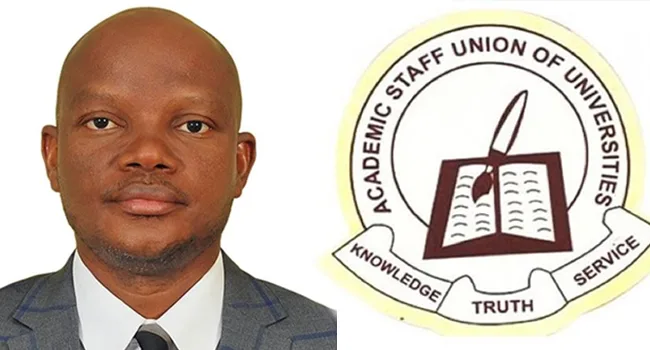The Academic Staff Union of Universities (ASUU) has issued a fresh warning of a potential nationwide strike, accusing the Federal Government of consistently reneging on agreements concerning the revitalisation and proper funding of Nigeria’s public universities.
Speaking at a press conference on Thursday at the University of Jos, ASUU National President, Dr. Christopher Piwuna, said university lecturers have endured more than two years of unmet promises and delay tactics by the government.
Among the unresolved issues, he listed the stalled renegotiation of the 2009 ASUU-FGN agreement, unpaid salary arrears, withheld promotions, poor welfare of retired lecturers, and the general underfunding of public universities.
“ASUU has written multiple letters to the Federal Government urging a peaceful resolution of these lingering issues. Unfortunately, the government continues to turn a deaf ear,” Piwuna stated.
He added that the union may be left with no other option but to embark on industrial action if the situation remains unchanged.
“It is always the Federal Government that pushes ASUU into strike action. We are once again at a crossroads, forced to consider action to compel the government to fulfil its obligations. The unresolved issues, if not addressed, could plunge the educational sector into yet another avoidable crisis.”
Dr. Piwuna also rejected the government’s proposed Tertiary Institutions Staff Support Fund loan scheme, describing it as a “trap” that fails to address the core needs of academic staff.
“Our members don’t need loans. What we need is the implementation of agreements that will restore our purchasing power. The government still owes us three months’ salaries, yet it is offering loans instead of settling its debts,” he said.
ASUU further criticised the continued establishment of new universities without adequate funding, warning that the trend undermines academic standards and contributes to Nigeria’s declining global university rankings.
On the issue of pensions, the union decried the poor treatment of retired professors, some of whom reportedly receive as little as ₦150,000 monthly after decades of service—an amount eroded by inflation and the rising cost of living.
ASUU said it would await the outcome of a government meeting scheduled for August 28 before taking its next step. However, it announced plans to stage protests across university campuses next week to publicly express members’ growing frustrations.
“Time is running out. We cannot continue to wait endlessly while the future of Nigerian universities is being destroyed,” Piwuna warned.
The threat of another ASUU strike is already raising fears of fresh disruptions to Nigeria’s fragile higher education system.
In 2022, ASUU embarked on an eight-month strike—its second-longest work stoppage. The longest occurred in 2020 during the COVID-19 pandemic, lasting nine months. Both were triggered by many of the same unresolved issues the union is again highlighting today.


